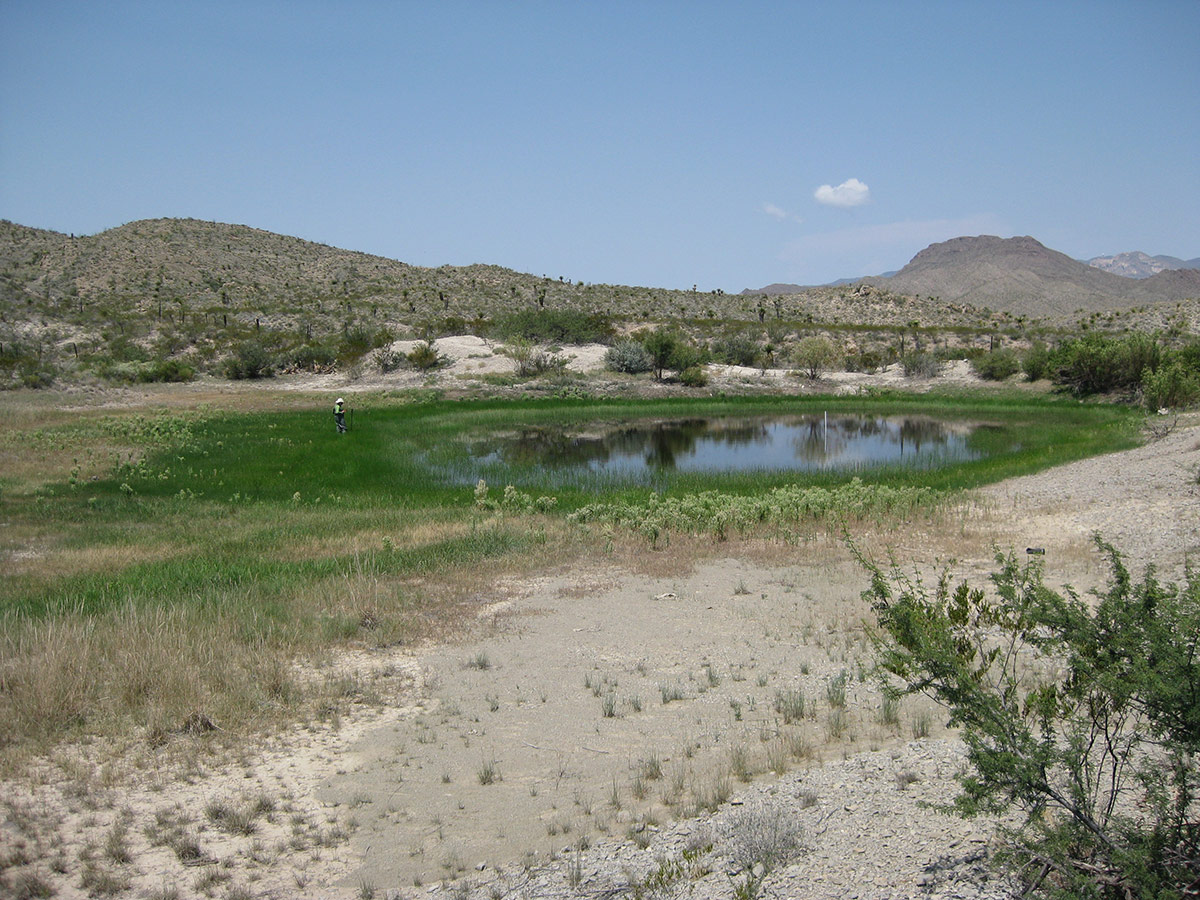
NSF Awards UTEP $5 Million to Lead Study of Earth’s Surface in Drylands
Last Updated on September 23, 2020 at 12:00 AM
Originally published September 23, 2020
By Christina Rodriguez
UTEP Communications
A team of interdisciplinary researchers at The University of Texas at El Paso was awarded $5.27 million by the National Science Foundation (NSF) to advance critical zone (CZ) research in drylands. The University is one of nine funded CZ research projects in the nation.

The critical zone is defined as the thin layer on the Earth’s surface from the top of the vegetation canopy to the groundwater aquifer below. During the past 15 years, NSF has funded CZ observatories throughout the United States. However, none have focused exclusively on drylands. This project aims to fill the gap in knowledge by investigating the co-evolution of biota-air-soil-water after rain in natural drylands and irrigated agricultural sites to improve capacity, and quantify how the dryland CZ responds to global change.
The interdisciplinary research team led by Lixin Jin, Ph.D., associate professor of geology at UTEP, consists of 13 researchers from the University, including Anthony Darrouzet-Nardi, Ph.D., assistant professor of biology; Lin Ma, Ph.D., associate professor of geology; Jennie McLaren, Ph.D., associate professor of biology; Vanessa Lougheed, Ph.D., professor of biology; Hugo Gutierrez, Ph.D., assistant professor of geology; Marianne Karplus, Ph.D., assistant professor of geology; Mark Engle, Ph.D., professor of geology; Jie Xu, Ph.D., assistant professor of geology, Thomas Gill, Ph.D., professor of geology; Craig Tweedie, Ph.D., professor of biology; Marguerite Mauritz-Tozer, Ph.D., research assistant professor of biology and Melissa Warak, Ph.D., assistant professor of art.
Collaborators outside of UTEP include Mengqiang Zhu, Ph.D, associate professor at the University of Wyoming; Nicole Pietrasiak, Ph.D., assistant professor at New Mexico State University; Jennifer Pierce, Ph.D., associate professor at Boise State University, and Meghan Curry, executive director of Insights El Paso.
“Our project, with an interdisciplinary team, will advance knowledge on the interaction of air-biota-soil-microbes-water in the dryland critical zone, train the next generation of geologists, biologists and environmental scientists, and serve to educate the community on important topics such as freshwater resources, agricultural sustainability and food production,” Jin said.
This project will address key environmental, societal and economic issues associated with the carbon cycle, groundwater recharge, land use, soil quality, global change and sustainability.
Three of five field sites are located in El Paso and Las Cruces, including Jornada Experimental Range. The two other sites are located in Idaho. The project will improve knowledge of soil and water resources in natural and agricultural fields locally with implications for drylands globally. Additionally, the project will provide training opportunities for local teachers, engage the public through outreach activities, train the next generation of undergraduate and graduate-level environmental scientists and contribute to development of a 21st century STEAM workforce.
“We are excited about our research, education and outreach activities and proud that we will be the leaders in the critical zone research in drylands,” Jin said. “This is also fruitful collaboration that crosses different disciplines. It aligns well with UTEP’s mission of advancing discovery of public value and positively impacts the health, culture, education, and economy of the community we serve.”
For more information on the project, visit https://www.nsf.gov/news/special_reports/announcements/090120.04.jsp#.X059OLqDDks.twitter